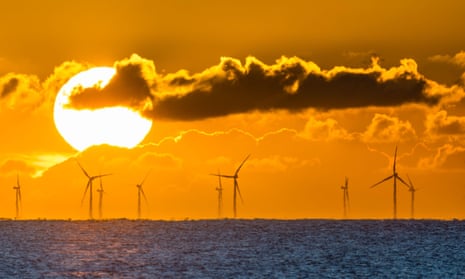The behemoth Australian fund IFM Investors will sink £10bn (A$19bn) into infrastructure and energy transition projects in Britain by 2027 as part of a new memorandum of understanding with the Sunak government.
The decision by IFM – which is owned by 17 Australian industry super funds – comes as a coalition of business and environmental groups calls on the Albanese government to supercharge tax and other financial incentives to ensure Australia can attract sufficient capital to drive the domestic transition to net zero emissions.
The MoU between IFM Investors and Britain’s minister for investment will be signed at the Global Investment Summit in London. Kemi Badenoch, the UK’s business and trade secretary, characterised the commitment from IFM as “a very important investment for the UK’s innovative energy and infrastructure sectors”.
IFM, which has approximately A$217bn under management as at 30 June 2023, says there are significant investment opportunities in Britain’s energy transition because the country is providing a favourable investment climate.
Deepa Bharadwaj, IFM’s head of infrastructure Europe said: “We currently see significant deployment opportunities, particularly as part of the UK energy transition in areas such as offshore wind, solar, battery storage, renewable fuels, and pumped hydro.”
As IFM expands its investment portfolio in the UK, the Australian Industry Group, the Australian Conservation Foundation, the Australian Council of Trade Unions, the Investor Group on Climate Change and WWF Australia will issue a joint statement declaring that Australia risks being left behind in a global race for capital.
The statement follows confirmation last week that taxpayers will underwrite the transformation of Australia’s energy grid through a radical expansion of the capacity investment scheme. In the biggest climate and energy policy development in a decade, the government proposes to underwrite 32GW of new electricity, consisting of 9GW of storage and 23GW of variable renewable generation.
The Albanese government has sustained faced pressure to respond to the Biden administration’s Inflation Reduction Act, which includes A$560bn support for clean energy and has escalated global competition for climate-focused investment.
The government is looking to expand its $2bn Hydrogen Headstart program and potentially apply that same model to other industries, as part of a response to the challenges posed by the IRA. The business and environmental groups say the Australian government needs to move quickly.
“The United States of America and Europe to peers like Canada, have enacted substantial financial incentives and a variety of other supportive policies to drive their transitions, and these are unlocking even larger private investment,” the groups say in the joint statement.
“Global capital, skills and supply chains are following the money. Without globally competitive, proportional and smartly targeted incentives of our own, designed to suit our economic strengths and values, Australia will be left behind.”
The groups note the climate and energy policies implemented by Labor to date, but say much more is required, including higher investment, sector-by-sector decarbonisation plans, faster implementation and greater coordination of delivery of the policies driving emissions reductions across the economy.
“There is a window of opportunity to unlock maximum global capital and foster the skills and supply chains we will need,” the groups say. “The Australian government should act now with a comprehensive set of policy tools, including but not limited to financial and/or tax incentives, that are equal to the immense opportunities and risks confronting us.”
Australia’s climate change and energy minister, Chris Bowen, will this week make an annual climate change statement to parliament and release a new assessment by the Climate Change Authority of Australia’s progress before travelling to the Cop28 summit in the United Arab Emirates.
